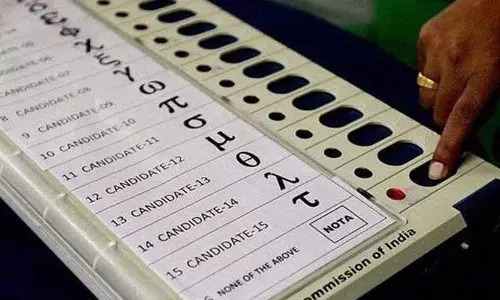
Surplus Reserve demands caution
text_fieldsThe decision of the Central Board of the Reserve Bank of India to transfer Rs 1.76 lakh crore of its surplus reserve in a first of its kind decision in the history of independent India, like many other reforms, will critically impact the economic future of the nation.
The chief recommendation of the Bimal Jalan Committee, the government-appointed panel to study how to handle the surplus reserve of, was that now on RBI should maintain only 5.5 to 6.5 per cent of the bank's total asssets as surplus reserve and the balance is to be transferred to the Central government. Accepting this, an agreement has been reached that Rs 1,23 414 Core and another Rs 52,640 crore forming capital dividend as part of the new economic framework, are to be transferred in phases. By this decision the Centre will receive an amount equal to 1.25 per cent of the Gross Domestic Product (GDP). This will definitely come as great relief for the government suffering from a financial deficit of 3.3 per cent of GDP and econmic recession.
With the acceptance of Bimal Jalan Committee recommendations by the Board, the tussle running betweenn the Centre and RBI for the last few years has ended in a defeat for RBI and a total victory for the Central government. The relinquishing of office of RBI Governor by Urjit Patel, once seen as a Modi confidante when he fell out of favour, and the resignation of deputy governor Viral Chari happened on the issue of RBI's surplus reserve, with both taking a firm stand that other than profit share, surplus reserve fund of RBI should not be transferred to the Centre. Patel's position was endorsed by many economists including former RBI Governor Raghuram Rajan and the Chief Economic Adviser of the first Modi government Arvind Subramaniam, on the grounds that the Centre's move to put its hands in the surplus reserve will endanger the autonomy and freedom of RBI, as also the inancial security of the country. What the government has now achieved through the current RBI governor Shaktakanta Das and the Bimal Jalan Report, is the fruition of a plan to bring RBI entirely under its control through the changes in its board. Further, in addition to the Rs 90,000 crore included in the Union Budget for the current year, the Centre has now been able to siphon off another Rs 84,000 crore from RBI to the treasury.
The government has got a significantly large economic shield during a downturn. It is at a time when the criticism is rife that the note-ban and the unscientifically rolled out GST were the reasons that led to the country's recession, that such a big amount from the surplus reserve is coming into the government coffers for its financial reforms. When the steep fall in the purchasing power of the people, and cash crunch caused job losses at an alarming rate, only the government can regain the confidence of traders and industrialists through stimulation packages. And only when the additional resources are used to facilitate cash flow among the people - instead of earmarking the additional resources for expenditure to solve budget deficit and for re-capitalization of the banks - can it overcome the economic recession.
However, the finance minister's statement indicates that Rs 70, 000 crore will be spent to resolve the capital concerns of public sector banks. Among those who doubt the rationale of this at a time when global economic recession is deepening, is a one-time Modi favourite Arvind Subramaniam. One of the chief tasks of RBI was to make effective interventions to ensure the financial stability andn growth of the country. Just like helping the government build up a diverse and robust economy, it is also incumbent on the Reserve Bank to rearlessly issue cautionary directions to prevent government policies from causing economic downfalls. And for saving the country from unforeseen economic jolts , RBI keeps a major share of its profit as reserve. And it this financial security cover of the Reserve Bank, that is being lost due to the government pushing its hands into this reserve fund. For this very reason, if this big an amount being withdrawn from the surplus reserve does not come to be of avail as a vibrant stimulation instrument for the economy, the country will have to face a more scaringly insecure sitution than was inflicted by demonetization. If the central government that ventured on a big leap of an unprecedented nature does not come ashore unhurt, then it is bound to get caught in a whirpool. And the repercussions of that will be imponderable.























